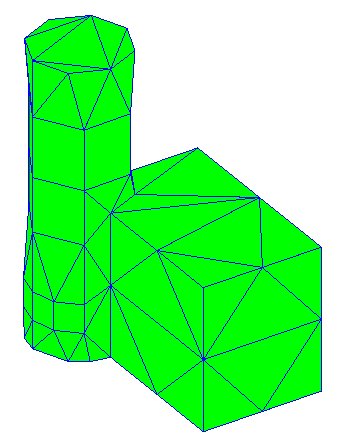|
|
LITR 5431
Literary & Historical Utopias
|
|
Cynthia Cleveland
The Best of All Possible Worlds:
Utopic Ambiguities
One phrase that has occurred to me frequently throughout
this area of study is: “The best of all possible worlds”, which is derived from
Gottfried Wilhelm Leibniz’s explanation of the balance of good and evil within
our world. His philosophical theory is predicated on the concept that there is a
possibility of many universes or worlds similar to our own, yet are invisible to
us, but that, surely, God, who created all of these possibilities, being the
only pure and omnipotent good in the universe, would have selected the ‘best of
all possible worlds’ for us to inhabit. In consideration of this theory, one
must then assume that all other worlds must be inherently chaotic or evil and
acknowledge the possibility that there can be no better world than that in which
we live. Yet, as a species we have long held a fascination with creating a
perfect world, or at the least, a better one, which tells us how unsatisfying we
have found this concept. Throughout history, there have been many attempts to
achieve such worlds—by means of government intervention in some cases—but none
has been truly successful. Literary Utopias and Dystopias exercises this branch
of philosophy by exploring these possible worlds, which are infinite—Utopian
literature being the best of all possibilities and Dystopian literature being
the worst. However, one of the most concerning aspects of utopian fictions is
whether we can fully understand what a utopia is or is not, which makes deciding
on the “best of all possible worlds” an extreme challenge.
Historically, we need only look into the past to see
perfect examples of dystopias and utopias. What inspires these forms of
literature is inevitably a result of the horrific acts that have been carried
out by humanity and projected onto the page as an exemplar with a narrative—we
need no inspiration for evil, only counterbalances. These forms of literature
carry our fears close to heart and reminds us of the potentiality of human
oppression and suffering. What it does provide is relief and reassurance that,
although the world is bleak, the good will balance out the evil—as Leibniz would
agree.
My favorite example of this is The Matrix, which
is a highly philosophical dystopia. This movie shows us a future in which we
have wreaked havoc upon the earth, to the point that it has become uninhabitable
and our technology has surpassed us. People then become prisoners of the
machines we have created, which feed on human beings as fuel. This is one of the
worst possible scenarios—the concern of Artificial Intelligence dominating the
human race and extreme environmental degradation. The argument of the movie
persists in which reality is the best of all possible worlds? A reality in which
we are kept in a simulation, living a whole life within our minds, or the
reality of the machines as our overlords, and we their slaves? Enlightenment,
essentially. This particular idea may be transmuted into real life, for more
than the obvious fears that it evokes, but also the decision of what we could
consider the best possible world in this scenario. To submit to an oppressive
regime, in which ignorance is the key to happiness—though artificial and
exploitative—or whether true utopia lies in Morpheus’s assertion that we must
“free [our] minds” and do away with the illusion of freedom in search of the
real thing. Thus, we can see that utopia also inhabits a state of mind in this
degree. For the machines, it is a utopia. For the humans, it is, and it isn’t,
depending on the individual state of mind. Think of it as a utopia of the mind
versus a utopia of the physical. It presents us with a certain amount of
ambiguity.
By definition a Utopia is “An imagined place or state of
things in which everything is perfect.” (Oxford Dictionary). However, this
definition is unsatisfactory, since we understand that a perfect state of being
is impossible, in any case, and that the idea of what a utopia is can be so
subjective. Utopia may be defined in many different ways, Ruth Levitas writes,
but there are two ways to consider what utopia means: a function, or the
reorganization of government, religion and other institutions in order to
achieve a goal—with positive or negative results; the other focuses on form,
which operates on the level of idealism, rather than attempting to create
perfection through institutionalization, it acts as an impractical guide—this
echoes the etymology of More’s coined word ‘utopia’ meaning ‘no place’ or ‘good
place’ (3-5). This form, some argue, is useless and obsolete. However, we can
consider this more as a literature of ideas, in which we may derive inspiration
for improvement without radical systematic alterations.
In real life and in fiction, Utopias are largely
associated with Marxist ideas (Levitas 14). Though some people may contest this
comparison, the idea of “utopian socialism” was a school of thought based on
Marxist principles (Encyclopaedia Britannica). The Oneida community is a good
example of this; all of the property, resources and work belonged to the
community as a whole, but more importantly they considered themselves to be an
egalitarian society. This has also been enacted on a larger scale, though the
balances of power and possession of resources changes from the people to the
government (socialism replaced with communism): Think of Hitler’s Third Reich or
North Korea’s communist rule; Hitler’s Third Reich was perhaps one of the most
horrific and violent failures, while North Korea’s communist society holds firm.
One would not consider either of these to be a utopia, but in someone’s mind it
must have seemed so. It shows then that the idea of utopia is subjective and
blurry, and this hiccup persists even in our fictions. This idea links back to
The Matrix, in which there is a figure that prefers the utopia of the
mind over that of the physical. Cypher prefers to reenter the matrix after his
enlightenment, for its security of the mind and the absentia of human suffering
he has experienced in the “real world”. It shows us that utopia is subjective;
both in fiction and non-fiction. After all, ‘one person’s utopia is another
person’s
dystopia’, as Dr. White would say.
So then, how do we reconcile this problem of subjectivity
concerning utopian ideologies? Our fictions offer us innumerable scenarios and
further muddle what a utopia can or cannot be. If we look at history, many of
these utopian societies are based upon the concepts of Marxist socialism and
communism, and those have turned out to be mostly failures. North Korea is thus
far considered to be a utopia of sorts, if we consider the definition provided
by Levitas, in that it is a utopia based upon function on a large scale. Andrel
Lankov refers to it more specifically as a “Stalinist Utopia”, which implies a
focus on industrialization and class conflict—the latter clashes with the
typically egalitarian socialist ideals of historical utopias (Webcast). If it is
a utopia, as many are inclined to identify it as such, who is it for? It returns
us to this dichotomy of the utopia of the mind or utopia of the physical, as in
The Matrix. The regime is inescapable, as the Zionists—occupants of the
real world of The Matrix—are unable to escape from the machines, and the
alternative is to live in The Matrix, much as North Koreans must
generally accept their skewed reality, as a nation that is poor and starving,
yet being told they are rich and plentiful (Lankov).
It then becomes an argument of form versus function in
defining what a utopia should encompass. If the “function” of a utopia is
impossible—as has been evidenced throughout history thus far—then the only thing
left is the form, or the more abstracted idea of utopia. It is this inability to
function in reality that lends utopia of the mind such gravity and makes that of
the physical more difficult to grasp. Simply put, in the mode of function, as
defined by Levitas, historically, utopias have not worked. It is then through a
literature of ideas that we are able to realize utopias in their form, and it is
there that they serve their best function. Through abstracted ideas, at least
those that avoid extensive government intervention, that we are offered the most
hope for the future and insights into what may be the best of all possible
worlds.
Lankov, Andrel. “The Real North Korea: Life and Politics
in the Failed Stalinist Utopia.” Wilson Center. 2013. Webcast.
https://www.wilsoncenter.org/event/the-real-north-korea-life-and-politics-the-failed-stalinist-utopia
Liebniz, Gottfried. “Best of all
possible worlds.”
Encyclopaedia
Britannica. https://www.britannica.com/topic/best-of-all-possible-worlds
Levitas, Ruth. The Concept of
Utopia. Syracuse University
Press, Syracuse, N.Y, 1990.
Wachowski, Andy and Larry Wachowski. The
Matrix.
Burbank, CA: Warner Home Video, 1999.




